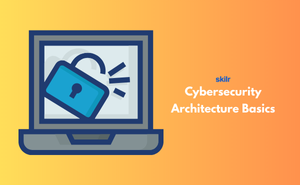👇 CELEBRATE CLOUD SECURITY DAY 👇
00
HOURS
00
MINUTES
00
SECONDS

The Cybersecurity Architecture Basics certification teaches the principles of designing strong and reliable digital security frameworks. It focuses on structuring IT systems in a way that ensures confidentiality, integrity, and availability of data. This means protecting sensitive information while keeping systems running smoothly.
Put simply, this training prepares professionals to think like digital architects—planning ahead, minimizing risks, and building defenses into the core of computer networks and applications. By learning these basics, individuals gain the tools to help organizations stay resilient against growing cyber threats.
This exam is ideal for:
Industry-endorsed certificates to strengthen your career profile.
Start learning immediately with digital materials, no delays.
Practice until you’re fully confident, at no additional charge.
Study anytime, anywhere, on laptop, tablet, or smartphone.
Courses and practice exams developed by qualified professionals.
Support available round the clock whenever you need help.
Easy-to-follow content with practice exams and assessments.
Join a global community of professionals advancing their skills.
Yes, it lays the foundation for that career path.
It focuses on architecture—designing secure systems from the ground up.
Finance, healthcare, government, IT services, and any data-driven industry.
Yes, you’ll learn about compliance standards and regulations.
Yes, but it focuses on concepts and frameworks rather than deep coding.
Risk management, secure system design, and knowledge of frameworks like NIST or ISO.
No, a general understanding of IT and networks is more important.
Beginners and professionals in IT or security fields who want to learn security design.
It’s the study of how to design secure IT systems to prevent cyber threats.
Yes, real-world scenarios are used to explain concepts.